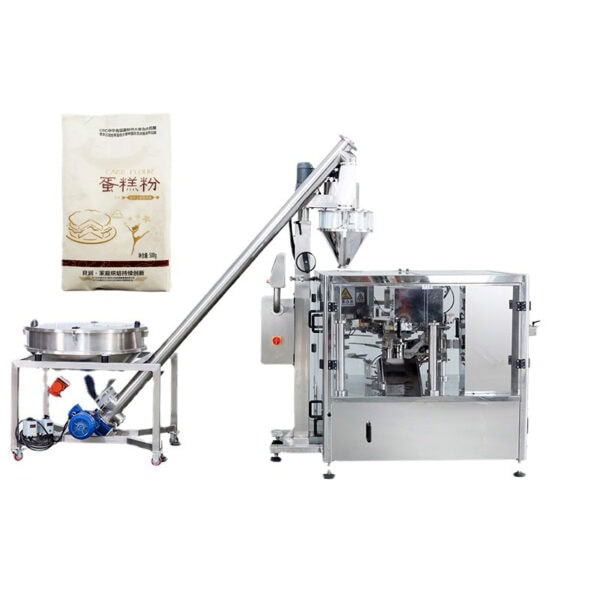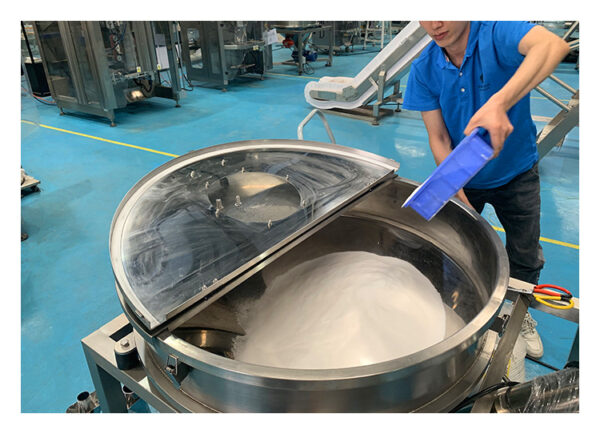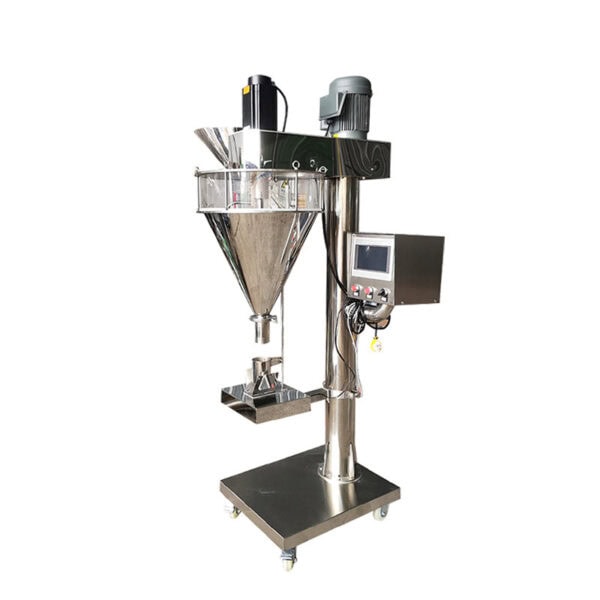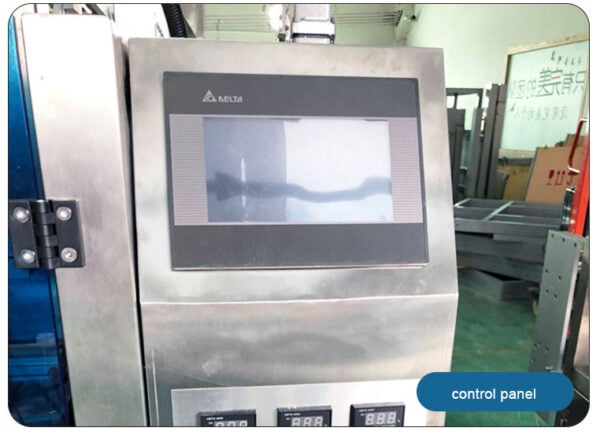Automated powder filling machines address inefficiencies in production lines by eliminating inaccuracies and delays that can impact productivity. Without automation, companies face increased waste and higher operational costs. Automating the filling process enhances efficiency and reduces errors, resulting in a streamlined production line.
An automatic powder bottle filling machine enhances efficiency, accuracy, and versatility in production, essential for businesses handling powdered products like pharmaceuticals, food, and cosmetics.
Automatic powder filling machines significantly boost production quality and quantity. Let’s dive into how they benefit your operations.

Consistent and Precise Filling
Automatic powder filling machines deliver high accuracy, ensuring each bottle receives a precise amount of product. This uniformity is vital for quality control in industries like pharmaceuticals and food, where exact measurements are necessary. Automated filling reduces waste, as every bottle is filled to the correct level without the risk of under- or over-filling.
Moreover, consistent filling is essential in meeting industry standards. With high-precision systems, such machines can fill powders in a variety of containers, which is especially beneficial when combined with labeling machine integration, creating a smooth, cohesive workflow.
Enhanced Production Efficiency
These machines provide faster processing speeds than manual filling methods, often filling hundreds or even thousands of bottles per hour. Automatic powder filling machines, like a well-integrated powder filling machine, increase production capacity while maintaining accuracy, reducing the workload for employees and enabling them to focus on other critical tasks.
This speed enhancement is particularly beneficial for large-scale operations where time savings directly correlate to improved productivity. Automation cuts down the time spent on filling tasks, helping companies meet higher production quotas without compromising quality.
Reduced Operational Costs
Investing in automation reduces operational expenses by minimizing labor costs and material waste. With automated processes, fewer employees are needed to oversee filling tasks, allowing companies to reallocate their workforce. Additionally, the reduced wastage lowers material costs, which is particularly advantageous when dealing with high-value products.
The initial cost of an automatic filling machine pays off quickly, as increased productivity, reduced waste, and fewer manual errors lead to a faster return on investment (ROI). Many companies have found that, by incorporating machines like a vacuum packaging machine and a powder packaging machine, they can optimize both packaging and filling efficiency.

Improved Hygiene and Safety Standards
Automatic powder filling machines reduce human contact with the product, improving hygiene and safety. This benefit is particularly valuable in food and pharmaceutical industries, where contamination control is paramount. With a sealed system, powder filling machines ensure the product remains uncontaminated, meeting regulatory standards for cleanliness and safety.
Automated systems not only protect the product but also enhance workplace safety. Reducing manual handling of powders minimizes the risk of inhalation or skin contact with potentially hazardous materials, creating a safer environment for employees.
Versatility for Various Powder Types
Automatic powder filling machines are designed to handle different types of powders, including fine, granular, and irregularly shaped powders. This versatility allows businesses to use one machine for multiple products, adapting to various powder types and container sizes without sacrificing accuracy.
This adaptability is especially beneficial in multi-product environments, where one line may need to process multiple items. By adjusting settings, these machines can fill various products with minimal setup time, making them an ideal choice for businesses that produce a range of powdered goods, such as those that use a flat labeling machine for different product types.
Customizable and Scalable Options
Many powder filling machines come with scalable and customizable options, allowing businesses to adjust machine settings based on production needs. Customizable settings such as fill volume, speed, and container type make it easy to modify the machine as requirements change, providing flexibility for future growth.
Scalability is essential as demand increases. With modular designs, companies can expand their production capacity without requiring a full replacement, making it easy to scale production in response to market growth or seasonal demand.

Reduced Product Spillage
Automated systems reduce spillage, a common issue in manual powder filling. By carefully controlling the filling and dispensing process, these machines minimize product loss, ensuring that each bottle is filled accurately without unnecessary spillage. This feature saves money on materials and maintains a cleaner workspace.
Reduced spillage also means less clean-up time and fewer interruptions in production, contributing to overall efficiency. The consistent performance of these machines translates to reduced operational costs and increased production stability.
Integration with Existing Production Lines
Modern powder filling machines are designed to integrate seamlessly with existing production lines, creating a continuous, cohesive workflow. This adaptability allows for easy integration with additional machinery, such as capping machines and bottle Labeling machines, enhancing the functionality of the production line without requiring a complete overhaul.
Integrating an automatic powder filling machine into your production line not only improves productivity but also simplifies management by centralizing multiple processes. With programmable controls, these machines can be synced with other production equipment for smooth, uninterrupted operation.
User-Friendly Interfaces and Smart Features
Automatic powder filling machines feature intuitive touchscreens and programmable settings, making them easy to operate. Operators can quickly adjust settings, monitor performance, and troubleshoot issues, reducing downtime and ensuring smooth operation. Many advanced models include diagnostic tools, enabling operators to perform maintenance checks directly from the interface.
Smart features also make it easier to switch between different production needs. Machines with these functionalities can adapt quickly to new products or packaging types, which is especially helpful for businesses that handle a variety of powder products in different containers.

Enhanced Quality Control and Compliance
Automatic powder filling machines meet strict regulatory standards by ensuring consistent, accurate fills. This consistency helps maintain product quality and compliance with industry regulations, a key consideration in industries like pharmaceuticals and food.
By adhering to compliance standards, these machines help businesses avoid costly recalls and maintain customer trust. Quality control is simplified, as each bottle is filled to an exact standard, minimizing variability and ensuring that all products meet specifications.
Conclusions
Investing in an automatic powder filling machine is a strategic choice for modern production lines, bringing efficiency, accuracy, and adaptability to meet growing demands.









